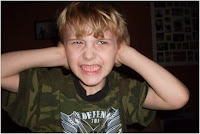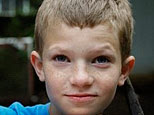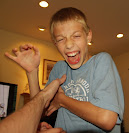Problems with "Sensory Overload" in Children on the Autism Spectrum

Question My children (3 teens---2 still at home--plus a 3-yr-old) all have ASD (level 1). They have the disability as well as dealing with others (including one parent) who also have ASD. As a result, people are oversensitive to sensory input and comments and, of course, go from 0 to 100 in seconds. I have a great deal of difficulty heading off the mood escalations and defusing the situation once it has started. I need any suggestions for quicker resolution, etc. that will help us function more effectively. Answer Children with sensory issues can be taught to understand how they are “wired” and adjust to the blended flood of incoming sensory messages that is their norm. Learning to understand their triggers will help them cope. For some, the labels on their shirts or itchy socks may overwhelm their senses and shut down their ability to listen to parents. Becoming aware of the irritation will enable them to remove the cause, and then better process auditory messages.



